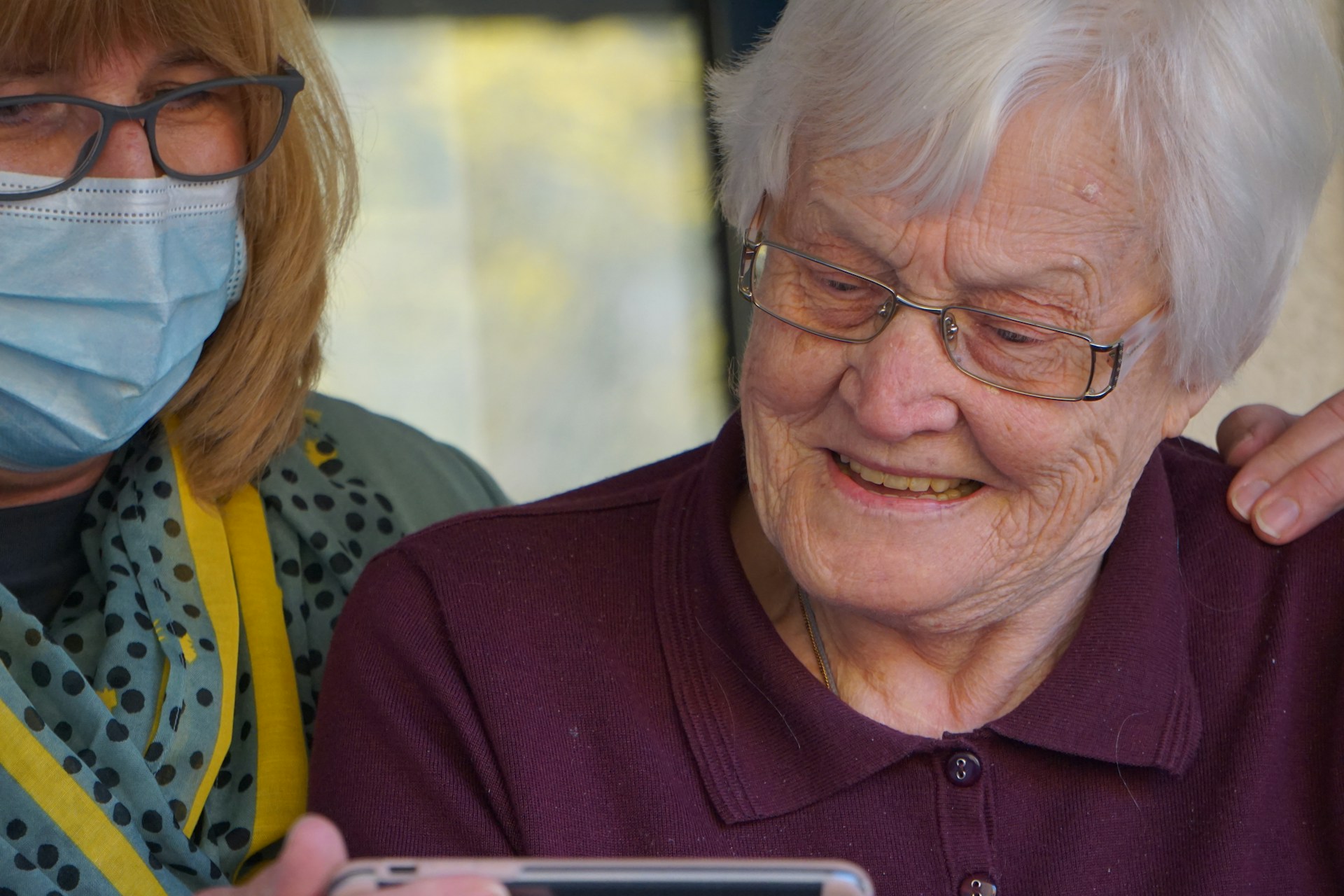Study In Australia
Aged Care Course in Australia: Complete Guide for 2025

Introduction
Australia's population is getting older quickly, and every year there are more and more jobs that need trained professionals to care for the elderly. This is why an aged care course in Australia is a great choice for students who want to work in healthcare and social support and make a difference. These kinds of courses teach you the skills and knowledge you need to care for older people in hospitals, retirement homes, and the community.
An aged care course in Australia for international students is a great way for students who want to study abroad to get hands-on training, earn industry-recognized certifications, and work in a growing field. Sydney is one of the cities that offers specialized programs. Students who take an aged care course in Sydney, Australia can get real-world experience in care facilities while studying in a lively city.
These courses teach important skills like taking care of yourself, managing safety, talking to people, and helping elderly patients stay mentally and physically healthy. Taking an aged care course can help you get jobs in hospitals, nursing homes, and community health services.
What Is an Aged Care Course?
Aged care course in Australia is a special program that teaches students how to care for older people in hospitals, nursing homes, retirement communities, and at home. These courses teach students the basic skills they need to help older people with their physical, emotional, and social needs while keeping them safe and healthy.
The course is good for both beginners and professionals who want to work in healthcare or make their career prospects better. It includes both theoretical learning and practical training, so students get to work in real-life aged care settings.
There are different levels of aged care courses in Australia:
- Certificate III in Individual Support (Aged Care): Teaches basic safety procedures, personal support, and care skills.
- Diploma of Community Services (Ageing Support): Gives you advanced training in how to manage care, help people stay independent, and coordinate services.
- Short-term and specialized programs: These are for aged care workers who want to learn specific skills like how to care for people with dementia, give palliative care, or do first aid.
Students who complete an aged care course in Australia for international students gain recognized qualifications that can help them secure jobs in hospitals, retirement homes, and community care organizations. Cities like Sydney offer real-world placement opportunities, so an aged care course in Sydney Australia is a great way to get hands-on experience.
Eligibility Criteria for Aged Care Courses
Before you can take an aged care course in Australia, you need to meet some requirements. These requirements make sure that students are ready for both the academic and practical parts of the course and can work in the aged care field.

1. Academic Qualifications
- Certificate III: Most of the time, you need to have finished high school or something similar.
- Diploma or Advanced Diploma: You may need a relevant Certificate III or work experience in healthcare to get a diploma or advanced diploma.
- Specialized short-term courses: They may not have many academic requirements, but they may require basic reading and writing skills.
2. Age Requirements
- Most classes want students to be at least 18 years old.
- Some schools may let students under 18 attend with special permission or permission from their parents.
3. English Language Proficiency
- International students need to show that they can speak and write English well, usually by taking the IELTS, TOEFL, or PTE tests.
- Common requirements are an IELTS score of 5.5 to 6.0 or something similar.
- Some schools may have English pathway programs for students who don't get the minimum score.
4. Health and Background Checks
- Students may need a medical check to ensure they are fit for practical training.
- You may need a police clearance certificate to work with older people during placements.
5. Work Experience (if applicable)
- If you want to take advanced courses or get a diploma, you may need to have worked in healthcare or aged care before.
At the Global Education Counselling Centre, we make sure to help students understand all eligibility criteria for aged care courses in Australia and guide them through the application process. Meeting these requirements will help you start your studies smoothly and get ready for a successful career in aged care.
Course Structure and Duration
The goal of an aged care course in Australia is to give students both theoretical knowledge and hands-on experience that will help them get ready for a job caring for the elderly. Understanding the course structure and duration helps students plan their studies and gain hands-on experience effectively.
1. Course Levels and Duration
- Certificate III in Individual Support (Aged Care) :It usually takes 6 to 12 months to finish the Certificate III in Individual Support (Aged Care). This course teaches you how to care for others, help them with their personal needs, and stay safe.
- Diploma of Community Services (Ageing Support): Usually lasts between 12 and 24 months. Students learn how to coordinate care services, provide advanced care, and help people become more independent.
- Advanced Diploma or Specialized Short Courses: Depending on the area of expertise, such as dementia care, palliative care, or mental health support, the length can be anywhere from 6 months to 2 years.
2. Course Modules and Subjects
- Hygiene and personal care
- Skills for talking to and working with other people
- Health and safety in aged care
- Meal planning and nutrition for seniors
- Supporting independence and daily activities
- Ethical and legal responsibilities in aged care
3. Mode of Study
- On-campus: Learning in a traditional classroom with hands-on training in either real or simulated care settings.
- Online or blended learning: This type of learning includes both virtual classes and real-life work placements.
- Practical placements: Most courses have work placements in hospitals, nursing homes, or community centers so students can get real-world experience.
At the Global Education Counselling Centre, we help students choose the right aged care course in Australia based on their career goals, available time, and preferred mode of study. We make sure they get both theoretical knowledge and hands-on experience.
Cost of Aged Care Courses and Scholarships
Before signing up for an aged care course in Australia, it's important to know how much it will cost and look into any scholarships that might be available. This helps students plan their money and makes studying in Australia cheaper.

1. Tuition Fees
- Certificate III in Individual Support (Aged Care): AUD 6,000 – 12,000 for international students.
- Diploma of Community Services (Ageing Support): AUD 10,000 – 20,000 for international students.
- Advanced Diploma or specialized courses: Fees for advanced diplomas or specialized courses range from AUD 15,000 to 25,000, depending on the school and length of the program.
2. Additional Costs
- Books and study materials: AUD 500 – 1,000 per year.
- Uniforms and equipment: Around AUD 200 – 500.
- Practical placement costs: Some courses may cover travel or insurance costs while you are on placement.
3. Scholarships and Financial Aid
- A lot of Australian schools give merit-based scholarships to international students who are studying aged care.
- Some scholarships pay for part of the tuition, while others may pay for living costs or help with housing.
- GECC also helps students find such scholarships and apply for them.
4. Tips to Manage Costs
- To find the best mix of quality and price, look at different schools.
- Find part-time jobs that are allowed by the rules of your student visa to help pay for living costs.
- Plan your money ahead of time to make sure you can pay for all of your living and school costs.
By understanding the cost of aged care courses in Australia and exploring scholarships, students can make informed decisions and focus on gaining practical skills and knowledge without financial stress.
Career Opportunities After Aged Care Courses
Students who finish an aged care course in Australia can find many jobs in the healthcare and social support fields. As the number of older people in Australia grows, there is a high demand for trained aged care workers.
This means job security and career growth.
1. Job Roles
After completing a course, students can pursue roles such as:
- Aged Care Worker / Support Worker: Helps elderly residents with their daily needs and personal care.
- Care Coordinator: Plans and organizes care services for people in hospitals, nursing homes, or the community.
- Community Health Worker: Supports elderly people living at home or in community centers.
- Dementia or Palliative Care Specialist: Provides specialized care to people who have certain health problems.
2. Work Settings
- Homes for the elderly and retirement homes
- Clinics and hospitals
- Health services for the home and the community
- Non-profit organizations focused on elderly support
3. Job Outlook and Salary
- The demand for aged care professionals is expected to grow steadily over the next decade in Australia.
- Entry-level aged care workers can earn AUD 45,000 – 55,000 per year, while experienced professionals and coordinators may earn AUD 60,000 – 80,000 per year.
- Additional opportunities exist for career advancement through further studies or specialized training.
4. Benefits of Completing an Aged Care Course
- Get qualifications that are recognized in the field.
- During the course, you will have access to real-world work placements.
- There are a lot of jobs available in Australia and around the world.
At GECC, we help students pick the right aged care course in Australia. This helps them get ready for careers with a lot of job opportunities and rewarding work in the aged care field.
Conclusion
If you want to have a meaningful and rewarding career in healthcare, an aged care course in Australia is a great choice. As the number of older people grows, there is a high demand for trained professionals, which makes aged care a stable and promising career path.
By enrolling in an aged care course in Australia for international students, students gain both theoretical knowledge and practical experience through hands-on placements in hospitals, nursing homes, and community care settings. Sydney is a great place to go to school, and taking an aged care course there gives you more chances to get real-world experience and make connections.
At Global Education Counselling Centre (GECC), we help students choose the right aged care course, understand eligibility requirements, plan finances, and secure placements, ensuring a smooth and successful start to their career.
In short, taking an aged care course in Australia gives international students the knowledge, skills, and chances to make a real difference in people's lives while also building a secure and rewarding career in a growing field.




